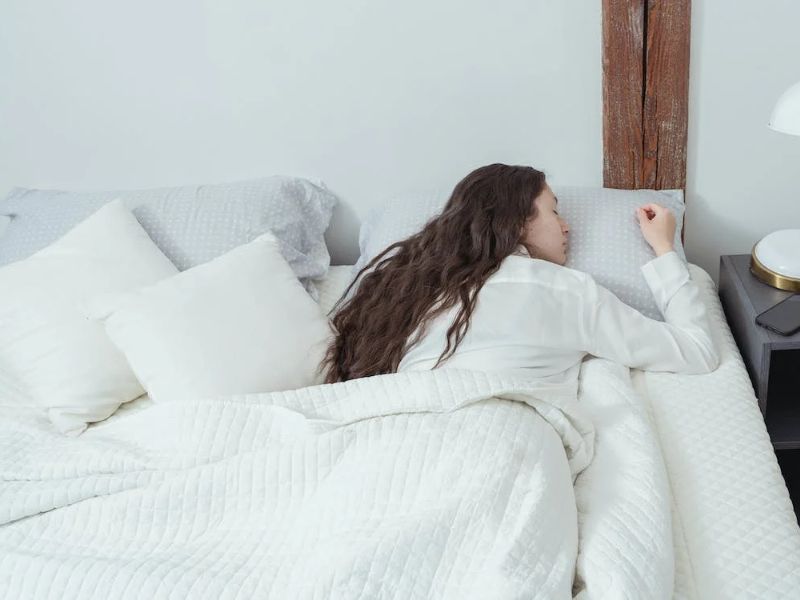Getting a good night’s sleep is essential for overall health and well-being. However, many couples struggle with sleep disturbances caused by their partner’s habits or sleep patterns. In recent years, the concept of separate bedrooms has gained traction as a potential solution to this problem. This article explores the idea of separate bedrooms and whether they can genuinely be a prescription for better sleep.

Image Credit: Pexels/Miriam Alonso
The Sleep Struggle: Understanding The Issue
For couples sharing a bed, sleep disturbances can arise from various factors. One partner may snore loudly, toss and turn throughout the night, or have different sleep schedules. These disturbances can lead to sleep deprivation, irritability, and even relationship strain. Some couples resort to separate rooms to regain restful sleep after recognizing the impact of these issues.
The Benefits Of Separate Bedrooms
Separate bedrooms offer several potential benefits for sleep. Firstly, they provide individuals with sleep space free from disturbances caused by a partner’s habits or movements. It can lead to improved sleep quality and a reduction in sleep disruptions. Additionally, having separate bedrooms allows each person to customize their sleep environment to suit their preferences, such as mattress firmness, room temperature, or ambient noise.

Image Credit: Pexels/Miriam Alonso
Maintaining Intimacy And Connection
While separate bedrooms may seem like they could hinder intimacy and connection, proponents argue that they can enhance these relationship aspects. By prioritizing quality sleep, individuals wake up feeling refreshed and rejuvenated, leading to increased emotional well-being and better overall relationship dynamics. Moreover, separate bedrooms can be seen as a way to ensure uninterrupted intimacy, as couples can spend time together in one room before retiring to their individual sleep spaces.
Communication and Compromise
Choosing separate bedrooms is a decision that requires open and honest communication between partners. It is essential to discuss the reasons for considering this arrangement and to explore potential solutions for maintaining emotional and physical connection. Finding a balance between shared and separate sleep spaces is crucial to ensure that both partners feel comfortable and satisfied with the arrangement.